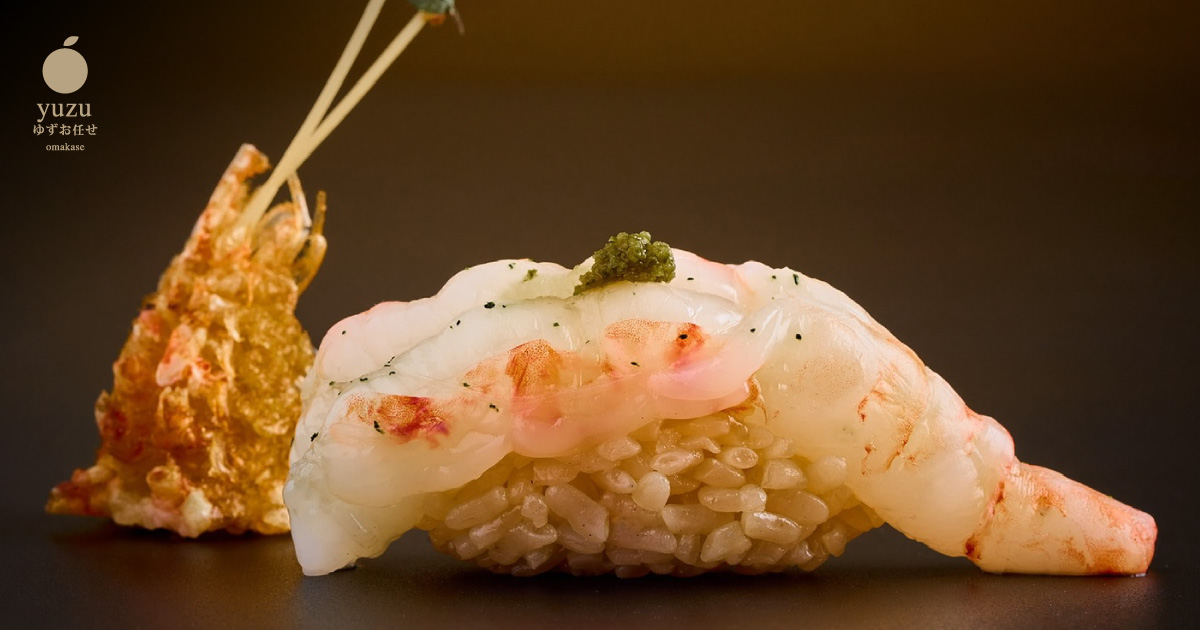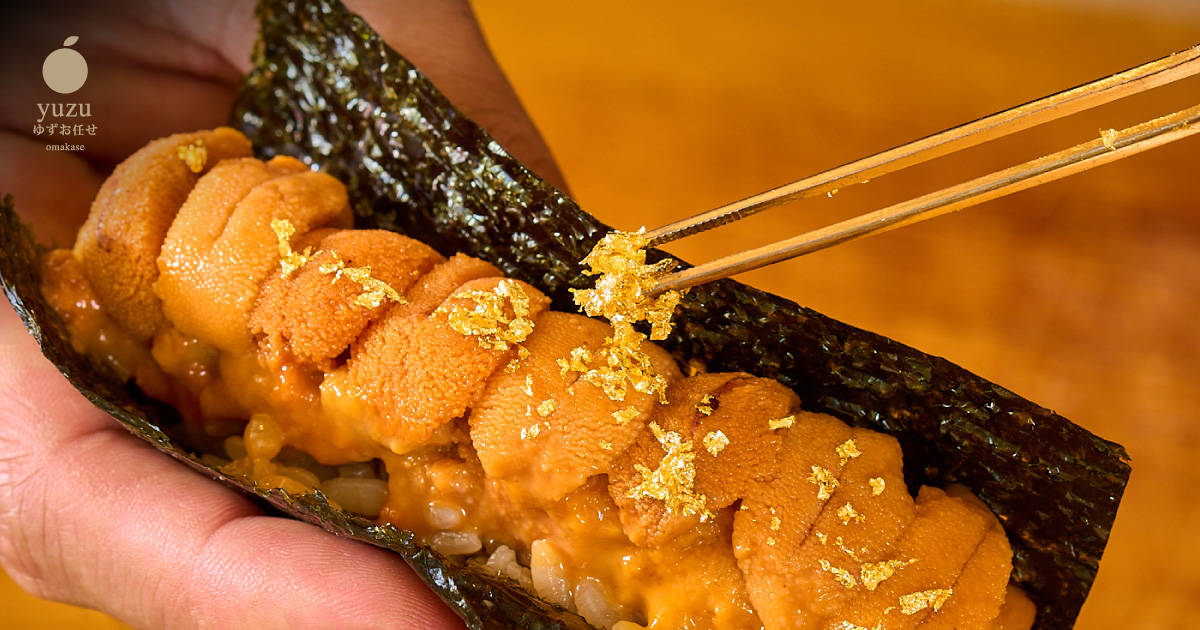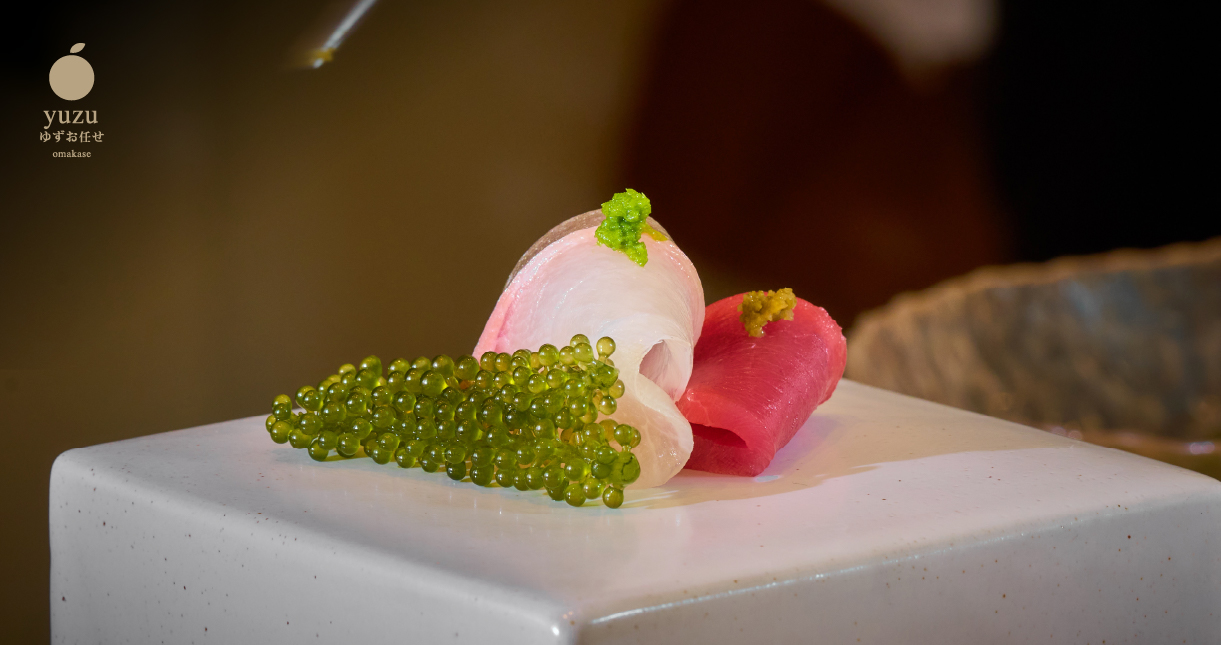
Seasonal Eating: Health Benefits of Eating with the Seasons
Introduction: Embracing the Philosophy of Seasonal Eating In today’s fast-paced world, it’s easy to overlook the natural rhythms of the seasons when it comes to the food we eat. However, more and more people are turning back to the wisdom of seasonal eating—a practice that revolves around consuming foods that are naturally harvested during their peak season. This age-old approach to food not only ensures that we enjoy fresher, more flavorful ingredients, but it also carries numerous health benefits.
Well-Being ● 2024 Sep 27
Seasonal Eating: Health Benefits of Eating with the Seasons
At Yuzu Omakase, we believe in the importance of aligning our menu with the seasons. Our omakase dining experience is built around the concept of seasonal eating, which allows us to serve the freshest, highest-quality ingredients available. By letting the seasons guide our menu, we provide our guests with an authentic experience that is not only delicious but also promotes overall well-being. In this article, we will explore the health benefits of eating seasonally and how Yuzu Omakase reflects this philosophy in every dish we serve.
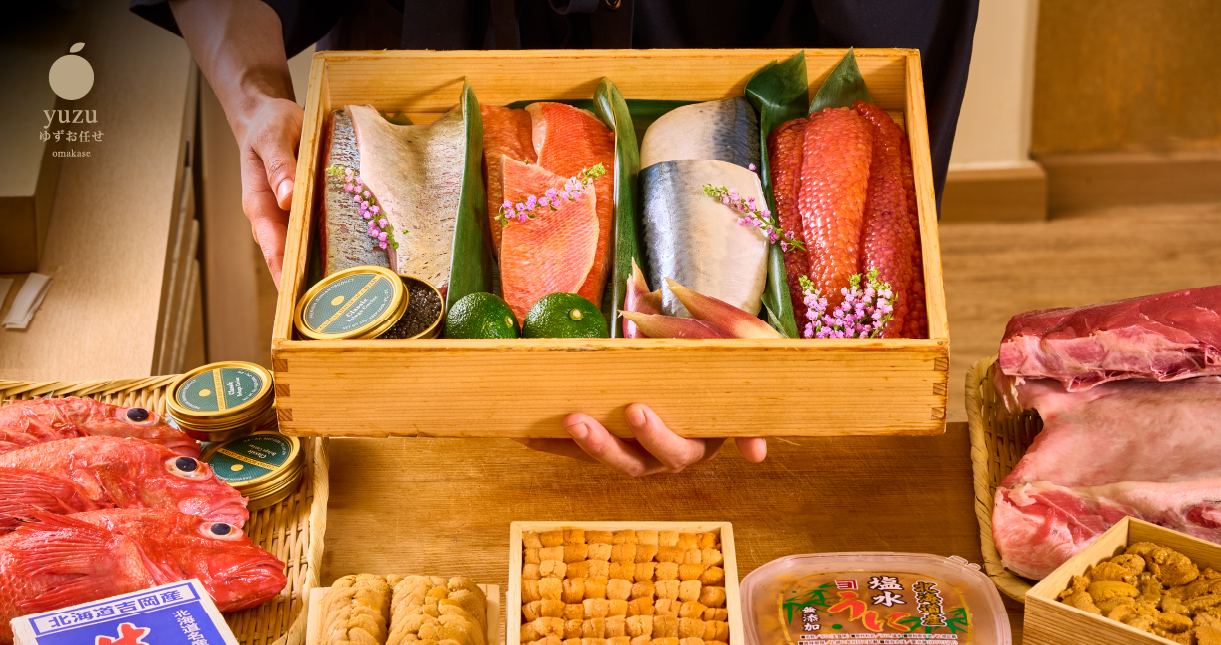
What Is Seasonal Eating?
Seasonal eating is the practice of consuming foods that are naturally grown and harvested during their peak season. In contrast to modern diets that rely heavily on out-of-season, imported, or artificially grown foods, seasonal eating emphasizes the importance of eating what nature provides at its most abundant and nutrient-dense time.
For example, strawberries are typically harvested in spring and summer, while pumpkins and squash are plentiful in autumn. In Japanese food culture, seasonal eating—known as shun—is deeply ingrained. This practice not only honors the cycles of nature but also celebrates the fleeting beauty of each season through food. At Yuzu Omakase, this philosophy is a cornerstone of our culinary approach, allowing us to showcase ingredients at their peak flavor and nutritional value.
Health Benefits of Eating Seasonal Foods
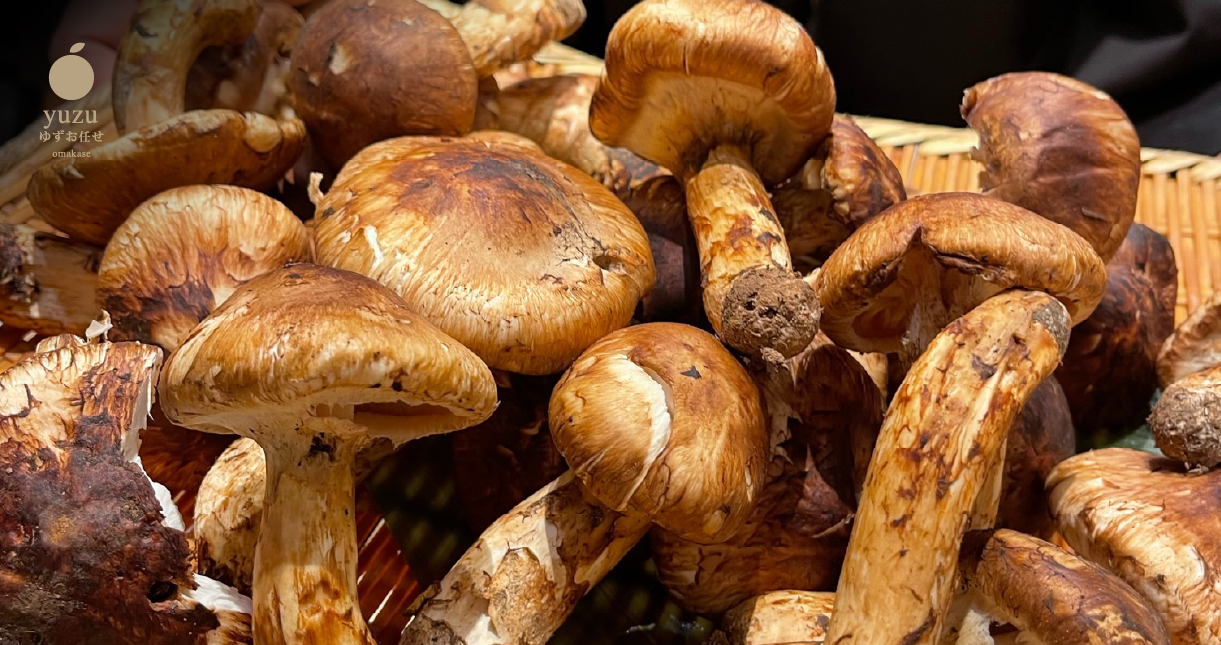
The benefits of eating seasonally extend far beyond the taste and freshness of the food. Here are some of the key health benefits associated with this time-honored practice:
1. Nutritional Superiority
Seasonal foods are often more nutritious than out-of-season produce. When fruits and vegetables are grown and harvested in their natural growing cycle, they are more likely to be packed with vitamins, minerals, and antioxidants. For example, winter vegetables such as broccoli, spinach, and sweet potatoes are rich in nutrients that support immunity, which is particularly beneficial during colder months.
By eating with the seasons, you ensure that you’re consuming produce that hasn’t been subjected to long storage times or artificial ripening processes. This means that you’re getting the maximum nutritional value from your food, which is essential for maintaining overall well-being.
At Yuzu Omakase, we source our ingredients with the same philosophy. Whether it’s fresh uni in the summer or matsutake mushrooms in the fall, every ingredient is selected for its seasonal peak, ensuring that our dishes provide both outstanding flavor and high nutritional value.
2. Better Digestion and Natural Alignment with the Body
Seasonal foods are not only fresher and tastier but also better suited to your body’s needs throughout the year. In traditional Japanese and Chinese medicine, it is believed that seasonal foods help the body maintain balance and adjust to the changing environment. For instance, in the cooler months, root vegetables and warming spices help to nourish the body and promote digestion, while cooling fruits and leafy greens are ideal for warmer seasons.
At Yuzu Omakase, this understanding is woven into our menu. During the colder months, we serve warming dishes that incorporate seasonal vegetables, hearty broths, and rich proteins like wagyu beef. In contrast, summer omakase features lighter, more refreshing options, such as chilled seafood and delicate sushi, which are easier to digest in warmer weather.
3. Supporting Immune Function
One of the most significant health benefits of eating seasonally is the support it provides to your immune system. Seasonal fruits and vegetables often contain nutrients that are particularly beneficial for the body at that time of year. For example, in the winter, you may find an abundance of citrus fruits, which are high in vitamin C—an essential nutrient for fighting off colds and infections. Similarly, in the summer, berries and other antioxidant-rich fruits are plentiful, helping to protect the body from the oxidative stress of heat and sun exposure.
By aligning your diet with the seasons, you’re giving your body the specific nutrients it needs to thrive during each time of the year. At Yuzu Omakase, we incorporate seasonal ingredients into every course, ensuring that our guests enjoy both delicious flavors and the immune-boosting benefits of nutrient-dense foods.
4. Enhanced Flavor and Freshness
Seasonal ingredients are at their peak of ripeness and freshness, which means they taste better. Foods that are grown out of season are often harvested early, artificially ripened, or shipped long distances, which can compromise their flavor. By choosing seasonal ingredients, we guarantee that the food we serve is vibrant, flavorful, and true to its natural character.
At Yuzu Omakase, the freshness of our ingredients is paramount. From the delicate sweetness of fresh uni to the earthy richness of matsutake mushrooms, each dish is crafted to highlight the natural flavors of the season. This commitment to freshness not only enhances the dining experience but also provides our guests with the full spectrum of flavors that can only come from ingredients at their peak.
5. Eco-Friendly and Sustainable
In addition to the personal health benefits, seasonal eating is also better for the environment. When food is grown and consumed during its natural growing season, it requires fewer resources like water and energy to produce. This results in a lower environmental impact and helps reduce the carbon footprint associated with food production.
By sourcing ingredients that are in season and locally available, Yuzu Omakase supports sustainable practices that are kinder to the planet. Our commitment to sustainability is reflected in our menu, which is designed to honor the natural cycles of the earth while minimizing waste and environmental impact.
How Yuzu Omakase Reflects the Philosophy of Seasonal Eating
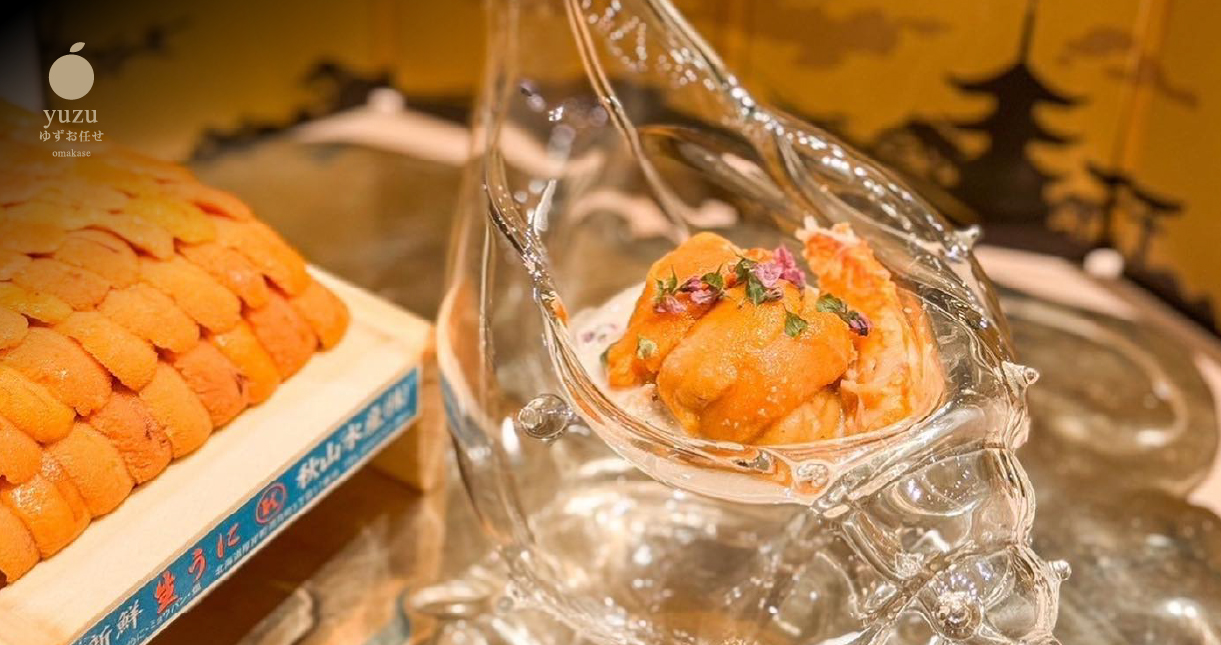
At Yuzu Omakase, we pride ourselves on offering a dining experience that is deeply rooted in the principles of seasonal eating. Our chef meticulously curates each menu to reflect the changing seasons, ensuring that every dish highlights the freshest and most flavorful ingredients available. Here’s how we incorporate seasonal eating into our omakase menu:
1. A Changing Menu Based on Seasonal Availability
Our omakase menu changes throughout the year to showcase ingredients that are at their peak. In the spring, guests can enjoy the delicate flavors of bamboo shoots and fresh greens, while the summer menu features sea urchin and shellfish. Autumn brings the rich, umami flavors of matsutake mushrooms and chestnuts, while winter offers warming dishes made with root vegetables and fatty fish.
This commitment to seasonality ensures that every meal at Yuzu Omakase is a reflection of nature’s cycles, providing both variety and a deep connection to the natural world.
2. Fresh Uni: A Seasonal Delicacy
One of the highlights of our menu is fresh uni, a delicacy that is most abundant during the summer months. Uni, or sea urchin, is prized for its creamy texture and briny sweetness. At Yuzu Omakase, we serve uni when it is at its freshest, ensuring that our guests experience its full flavor potential.
By waiting for the right season to serve ingredients like fresh uni, we guarantee a superior dining experience that aligns with the principles of well-being and sustainability.
3. Matsutake Mushrooms: A Taste of Autumn
Autumn is a special time of year in Japanese cuisine, as it brings with it the harvest of matsutake mushrooms. These rare and highly prized mushrooms are known for their earthy aroma and intense umami flavor. At Yuzu Omakase, our chef incorporates matsutake mushrooms into a variety of dishes, allowing guests to savor the rich, seasonal flavors that define Japanese autumnal cuisine.
4. Sustainable Sourcing and Minimal Waste
In line with our commitment to sustainability, Yuzu Omakase sources ingredients responsibly, ensuring that our menu reflects not only the seasons but also sustainable fishing practices. We work with local and international suppliers who share our commitment to ethical sourcing, and we minimize waste by using every part of the ingredients we purchase.
By embracing both seasonal eating and sustainable sourcing, we are able to offer a dining experience that supports the health of our guests and the planet.
Conclusion: Discover the Benefits of Seasonal Eating at Yuzu Omakase
Eating with the seasons is not just a culinary trend—it’s a philosophy that promotes better health, enhanced flavors, and a deeper connection to the natural world. At Yuzu Omakase, we are proud to reflect the principles of seasonal eating in every dish we serve. From the nutrient-rich ingredients to the sustainable practices we follow, our omakase menu is designed to nourish both body and soul.
Ready to experience the benefits of seasonal eating for yourself? Book your seat online today and join us at Yuzu Omakase for a dining experience that celebrates the best of each season.

RELATE
-
Japanese Restaurant in Thailand Bangkok Siam Square That Cares About What You Eat
In a world of fast consumption and hidden ingredients, Yuzu Omakase Thailand stands apart—offering a transparent, sustainable, and health-conscious omakase experience that redefines fine Japanese dining in Bangkok.
Well-Being ● 2025 Jun 23
-
High-Quality Ingredients, High-Quality Life: The Wellness Side of Omakase Bangkok
At Yuzu Omakase Thailand, dining is more than indulgence — it’s nourishment. Through the highest quality imports and time-honored Japanese techniques, this premier omakase destination in Bangkok turns every meal into a step toward balanced, radiant living.
Well-Being ● 2025 Jun 21



